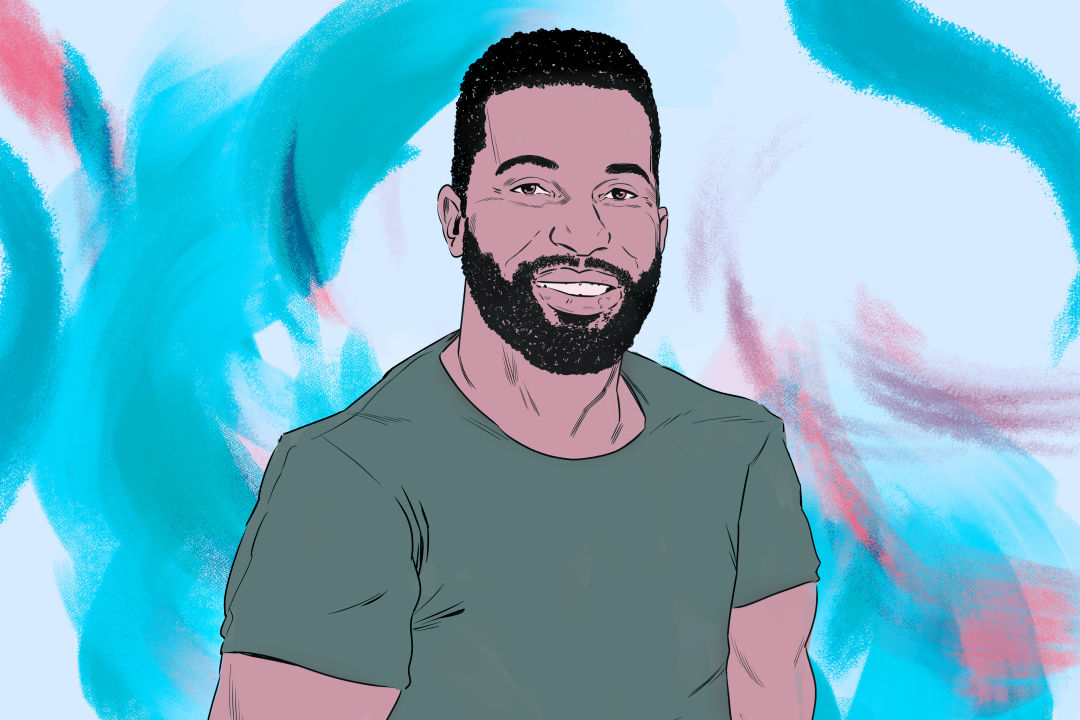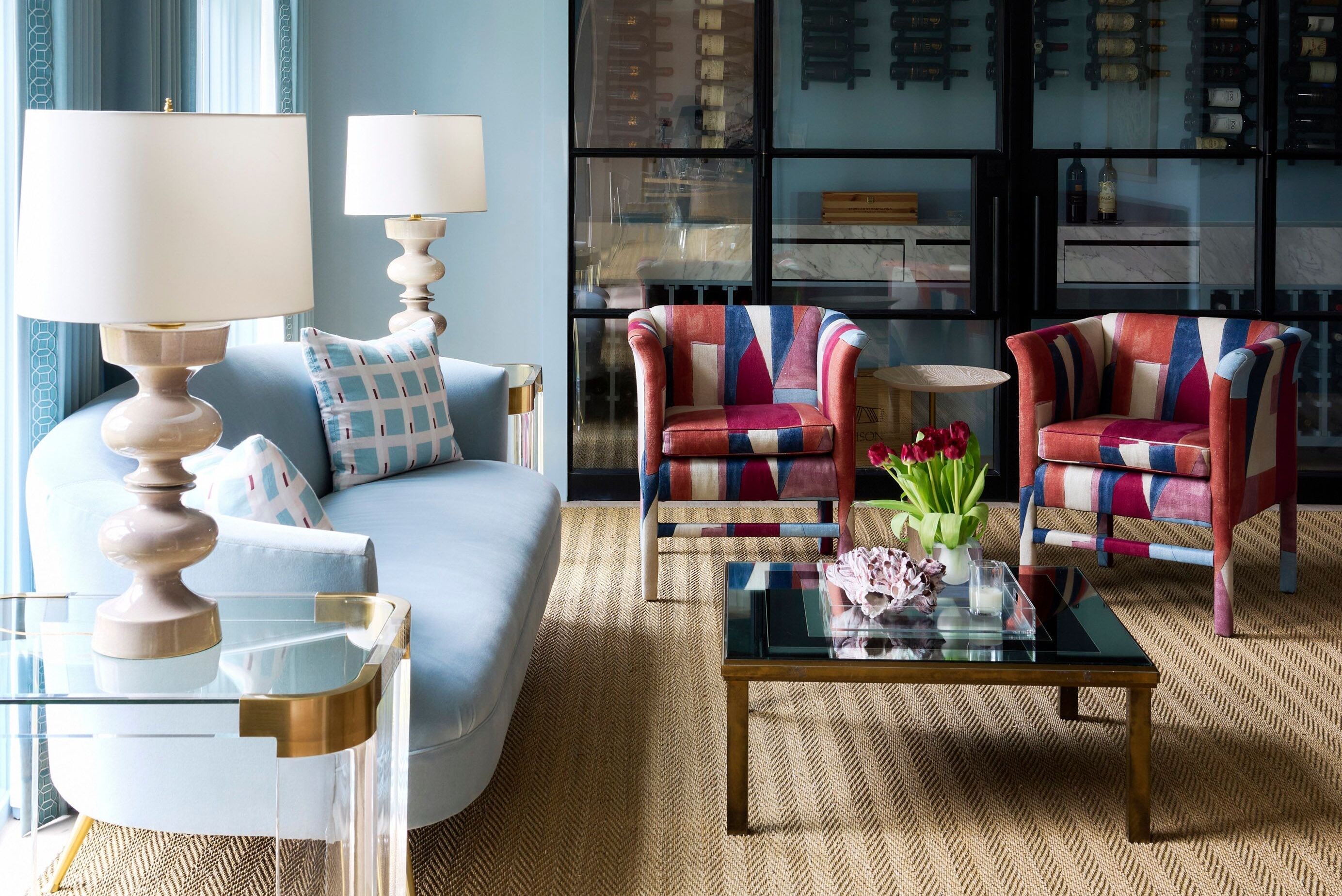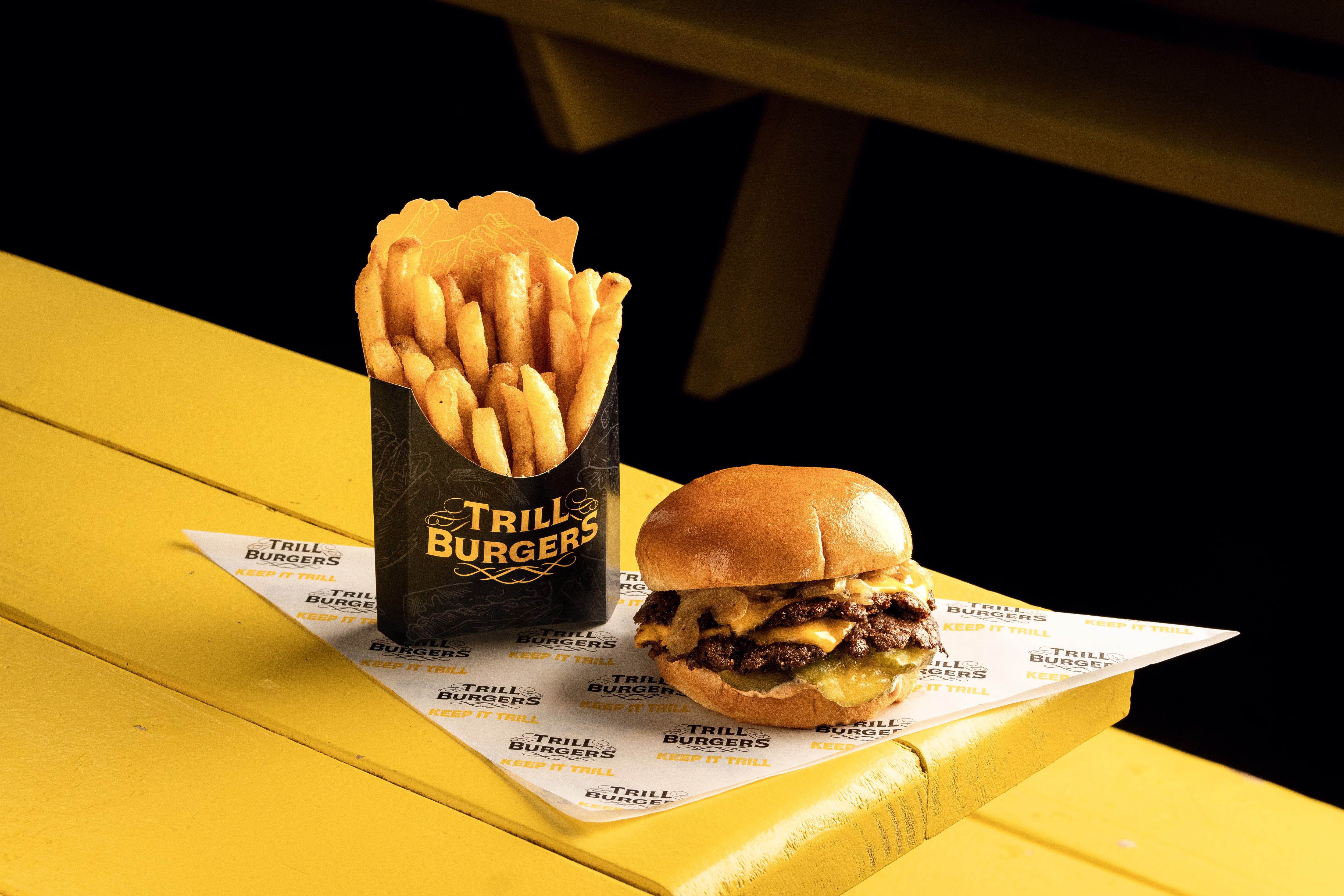Darryl Sharpton Is Building a Life Beyond the Field

Image: Devin Finch
Darryl Sharpton always knew there was life after football. As a fourth-round draft pick for the Houston Texans in 2010, Sharpton said football provided him with a comfortable living and an abundance of opportunity, but after injuries forced him to retire in 2015 he already had a plan to build a new career for himself and his family.
Gifted with the ability to see life past professional football, (and a degree in business), Sharpton was able to make a smooth pivot to more entrepreneurial pursuits. Today at 36, Sharpton has redefined his career off the field with his multi-million dollar furniture businesses, Edloe Finch and Albany Park.
Houstonia was able to sit down with Sharpton at Montrose’s Vibrant coffee shop (one of his favorites) and ask him about his time away from football, the road to becoming a business magnate, and his new plans to shake up Houston’s hospitality industry.
Houstonia: Since retiring from football in 2015 you’ve embarked on a successful foray into the business world. What are some of the big differences between achieving success in pro football and success in business?
Darryl Sharpton: The big difference, especially innately being an entrepreneur, is that I really didn't enjoy being an employee. Even though obviously, a professional football player is a glorified employee. You clock in and clock out. I had no control over my work. It was dictated by somebody else. Even though I think some people might hear that and are like, ‘how can you complain? You were making a good salary playing football.’ But I like to control my own destiny. So when I finished playing, I felt totally free, I could do whatever I wanted. I could come up with my own ideas and create my own destiny. So it was liberating to transition out of football for me.
You’ve started a popular online furniture venture. Furniture is a very niche market. Where did Edloe Finch and Albany Park begin?
It began for me in college. I’ve always been a serial entrepreneur. I’ve always had something to sell at any given point in my life. At that time, I had two e-commerce websites: a paintball equipment site and a heart rate monitor website, which are totally random, I know. My then-girlfriend needed a sofa, and she asked if I could go with her to meet this person she found on Craigslist. As I walked into this lady's home, I realized that her home was a furniture showroom, and there were price tags on all the pieces. She had her supplier’s catalog sitting in the corner of the room and she had marked out all the names with a black marker. I snuck and grabbed it, and held it up to the light to find her supplier. So I replicated her business model. Instead of having my own furniture showroom inside my college apartment, I started posting ads similar to what she was doing. However, I started to notice that people were willing to buy the sofa, sight unseen. I was able to see that sofas were a commodity. In order to start a home you have to have a sofa or a mattress, and that really clicked with me. So that was my lasting impression and my entry into working in the furniture business.
What made you so passionate about doing this work?
At first, it was more of a means to an end. I figured I could put a $100 markup on this sofa and sell it. But as I continued to do it, I began to ask, ‘well what do customers really like?’ Once you start thinking about what customers are really into, then you start getting into the design and the comfort of the cushions, different seams, the colors, and the different qualities of the velvets. You can get so deep into all the intricate details, how the legs screw on, how wide the cushions are, or seat depth. Now I’m obsessed with every single detail in a crazy way. I can't watch a movie and not think, “ah man, that sofa’s kind of weak. I wonder who the set designer was.” Before I knew it I was obsessed.
On the Albany Park website, the story goes that you tried to buy a couch and the process “sucked” so badly that you decided to start your own company. What makes Albany Park not suck?
At first, there was no customer-facing part of our business. We were in the dark and we only sold to big companies like Wayfair, Amazon, and Overstock, and we were selling them products. We were selling everything—dining chairs and tables, TV stands, everything. But the number one thing that people were gravitating towards was certain models of sofas. It got to a point where I felt we should get laser-focused on selling products that people need to anchor their homes. So I figured we could create a similar structure to companies like Casper, Tufted Needle, Purple, and other mattress-in-a-box companies, but with sofas. I wanted a simple way for people to pick a sofa, and have it delivered in three to five business days.
It must be gratifying to experience success outside of the NFL. How did you go about investing during your career (if at all) to create such a lucrative business? Any investing tips for our readers?
I never wanted my success to be defined by my body or what my body could do. It always drove me crazy when I was injured or how the state of my body would dictate my value and my worth. I always had more to offer. I've always been entrepreneurial, so I never felt like this [football] was the end all be all for me. I remember once a coach actually said in front of the team, “hey, guys, you guys need to take advantage of this opportunity you have. You guys will never make more money than you're making right now.” I remember thinking, well, I'm making a league minimum. What do you mean, I'm never gonna make more money than I'm making right now? I actually felt really insulted by that. After football, I knew I would engage in business ventures, but I can't say that during my playing time, I was meticulously planning the furniture business. It all happened when I retired.
The only thing I can say about investing is to invest in something that you're truly passionate about. I think too many times I hear friends say, “well, I'm investing in this” and I always ask, why are you doing that? And the response is, “I heard it was hot.” I can only invest in something that I understand and truly believe in. If it's hearsay, like, “oh, you should invest in this tech company. I heard they're gonna blow up,” that's not enough. I always read books and stayed fresh on investing in the stock market. I read some pretty powerful books over that time period that got my wheels spinning.
What books did you read?
One book that really impacted me was called Bold by Peter Diamandis, and it was a very generic, but bold outlook into the future. He was talking about all these different exponential technologies and how quickly the world is evolving. It put me into this mindset that the world is advancing very fast. It pinpointed different technologies and visions and what the world would look like and how it will change. It really inspired me and it really woke me up and it made me feel, “man like I'm gonna conquer the world.”
What are some of the significant wins you’ve seen off the field with Edloe Finch and Albany Park? (revenue, awards, etc.)
Some of the big victories, other than selling the company, was noticing companies that—and I won't name them—I was once envious of, big competitors, seeing, and knowing that we're on their radar as a threat. I'm in awe of that. We're actually threatening your market share and they’re doing little things to copy us. When I first started the company, I was pretending to be—I wanted to look like I was one of the big companies, then when you actually become one, it’s like, wow. I’m actually doing this. I'm a big Drake fan. So when Drake said the line, “when you are, who you are, who you think you are,” how does it go?
“You know it’s real when you are who you think you are.”
Boom that one. That defines it right there. When I started I was always pretending to be huge. Act like a big company, and look like one. Make the product on the website look like a big company, and have your customer service answering machine sound like a big company. And then before you know it, you are that big company. We’re doing better than companies I was once admiring. So that feels good.
I’ve read that one of the furniture lines you’re most proud of is the Ekaabo Collection, which has its roots in your Nigerian heritage. Can you speak about what it was like tracing your roots to West Africa and how that informed a line of furniture?
I'm not necessarily proud of this, but for some reason, when I found out that I was from Nigeria, it was very emotional for me. It was almost as if, and I mean this sincerely— somewhere deep down inside, I was yearning for some sort of answer. When I tell people that I have Nigerian heritage, people already expect that. But, it’s good to know where you come from. When it happened it connected me deeper almost simultaneously. I started getting into Ankara fabrics. I started messing with different designs. I had seen people upholster one-off products with Ankara fabrics. So I wanted to try that, but on a larger scale. It was my way of putting my stamp and my roots on the brand. I also wanted other African-Americans to take pride in my success—as self-serving as that may sound—and take pride in the company.
You were drafted by the Houston Texans but played for a number of teams during your career, including Arizona, Washington, and Chicago. What made you decide to plant roots in Houston?
I spent the majority of my career here, about four years. Essentially the other three teams I was on were in the span of a year and a half. It's funny, because when I first moved to Houston, I was coming from Miami. I felt it was too calm, but then, I fell in love with Houston. Again, I'm secretly a really emotional person because I remember I left Houston and I went to Washington. I came back here to visit a doctor for some injury I had. I was driving on Kirby Drive, and I saw the old townhouse I used to live in and I got emotional. Tears welled up in my eyes. I really love this place. It has a special place in my heart.
I know there are plans to roll out a Houston-based hospitality brand. Can you tell our readers more about what that will look like?
The idea of the hospitality brand is short-term rentals. Airbnb experiences are a little different than hotels. A lot of times I walk into spaces and it looks like people threw together some furniture, but there’s another level to making spaces comfy. I like to put real thought, energy, and passion into it. So that’s what I’m working on now. I’m embarking on 10 homes inside the loop that are in the process of being constructed, which we will put our brand on, The Sharpton. We will also move out into more popular suburbs like Cypress, Katy, The Woodlands, and Sugar Land. We want to position ourselves in those markets as well and offer both long and short-term rentals. We’ll use our same brand aesthetic, the same warmth, and the same sort of structure. It’s not interior either, it’s exterior too. When you come up to a space and the building is cool, that too affects how excited you are to go back to your room.
You’re the second cousin of Rev. Al Sharpton. Do you feel that you’ve successfully upheld the family name?
I do. I think in the beginning, when I first got drafted, he [Al Sharpton] was asking me, “are trying to be the most popular Sharpton out here?” But leaving football and continuing to find success feels good. It makes me wonder about the power of genetics or the power of examples. Is there something to that? Or is it a coincidence? There’s probably a little bit of both, but I think it speaks to the power of having expectations. Real expectations. Not dreams but expectations. Being raised in an environment where you are expected to have a certain level of success, especially when you have those examples in your family. I’m very proud and very fortunate with how things turned out.




